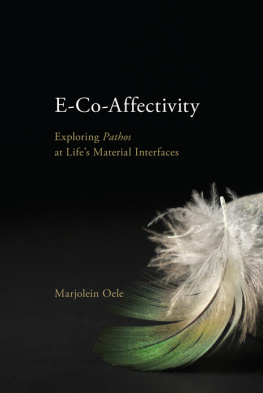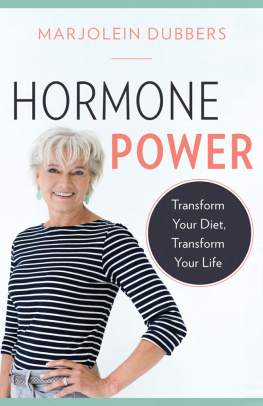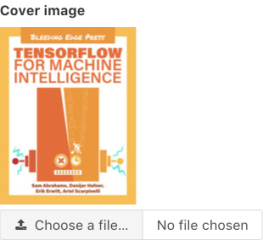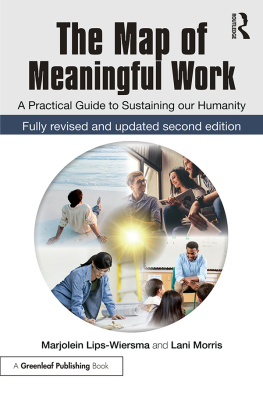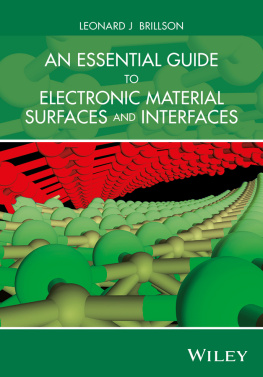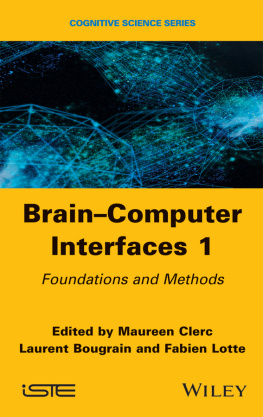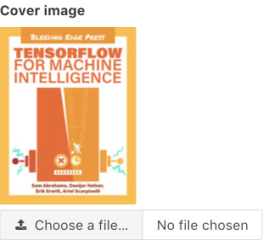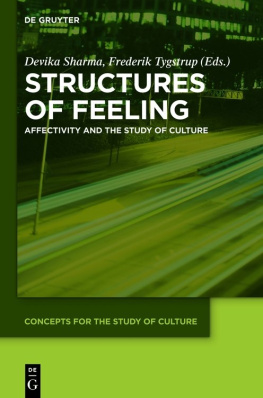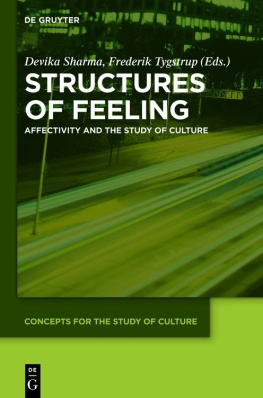Marjolein Oele - E-Co-Affectivity: Exploring Pathos at Life’s Material Interfaces
Here you can read online Marjolein Oele - E-Co-Affectivity: Exploring Pathos at Life’s Material Interfaces full text of the book (entire story) in english for free. Download pdf and epub, get meaning, cover and reviews about this ebook. year: 2020, publisher: State University of New York Press, genre: Religion. Description of the work, (preface) as well as reviews are available. Best literature library LitArk.com created for fans of good reading and offers a wide selection of genres:
Romance novel
Science fiction
Adventure
Detective
Science
History
Home and family
Prose
Art
Politics
Computer
Non-fiction
Religion
Business
Children
Humor
Choose a favorite category and find really read worthwhile books. Enjoy immersion in the world of imagination, feel the emotions of the characters or learn something new for yourself, make an fascinating discovery.
- Book:E-Co-Affectivity: Exploring Pathos at Life’s Material Interfaces
- Author:
- Publisher:State University of New York Press
- Genre:
- Year:2020
- Rating:3 / 5
- Favourites:Add to favourites
- Your mark:
- 60
- 1
- 2
- 3
- 4
- 5
E-Co-Affectivity: Exploring Pathos at Life’s Material Interfaces: summary, description and annotation
We offer to read an annotation, description, summary or preface (depends on what the author of the book "E-Co-Affectivity: Exploring Pathos at Life’s Material Interfaces" wrote himself). If you haven't found the necessary information about the book — write in the comments, we will try to find it.
Marjolein Oele: author's other books
Who wrote E-Co-Affectivity: Exploring Pathos at Life’s Material Interfaces? Find out the surname, the name of the author of the book and a list of all author's works by series.
E-Co-Affectivity: Exploring Pathos at Life’s Material Interfaces — read online for free the complete book (whole text) full work
Below is the text of the book, divided by pages. System saving the place of the last page read, allows you to conveniently read the book "E-Co-Affectivity: Exploring Pathos at Life’s Material Interfaces" online for free, without having to search again every time where you left off. Put a bookmark, and you can go to the page where you finished reading at any time.
Font size:
Interval:
Bookmark:

SUNY series in Ancient Greek Philosophy
Anthony Preus, editor
For my parents,
Jacoba Oele-Ruissen (19292012), and Laurens Oele (19232017)
And my brother,
Bastiaan Laurens Oele
For fueling my desire to know and care amid a world in need of compassion
E-Co-Affectivity
Exploring Pathos at Lifes Material Interfaces
MARJOLEIN OELE

Cover art: iStock by Getty Images.
Published by State University of New York Press, Albany
2020 State University of New York
All rights reserved
Printed in the United States of America
No part of this book may be used or reproduced in any manner whatsoever without written permission. No part of this book may be stored in a retrieval system or transmitted in any form or by any means including electronic, electrostatic, magnetic tape, mechanical, photocopying, recording, or otherwise without the prior permission in writing of the publisher.
For information, contact State University of New York Press, Albany, NY
www.sunypress.edu
Library of Congress Cataloging-in-Publication Data
Names: Oele, Marjolein, author.
Title: E-co-affectivity : exploring pathos at lifes material interfaces / Marjolein Oele.
Description: Albany : State University of New York Press, 2020. | Series: SUNY series in ancient Greek philosophy | Includes bibliographical references and index.
Identifiers: LCCN 2019028129 | ISBN 9781438478616 (hardcover) | ISBN 9781438478623 (ebook)
Subjects: LCSH: Emotions (Philosophy) | Senses and sensation.
Classification: LCC B105.E46 O35 2020 | DDC 113/.8dc23
LC record available at https://lccn.loc.gov/2019028129
10 9 8 7 6 5 4 3 2 1
With a book title such as E-Co-Affectivity , it would be insensitive, if not outright wrong, not to acknowledge the soil and the various milieus that have informed, shaped, and inspired this project. If there was ever a place and time to address the factor of togetherness (the co of co-affectivity) that goes beyond simple addition to truly constitute a community, and if there was ever a place and time to address the home and milieu (the eco of eco-affectivity) that has made this very project possible, then here and now is the place and time to acknowledge this.
Addressing the academic home and milieu within which I have come into my own, I have to thank the University of San Francisco and its various institutional support mechanisms for promoting my academic research. First, being awarded NEH Chair at USF in 201617 allowed me time to finalize the draft and draw the main lines of this book manuscript together, as well as the opportunity to share my work with a broad public at USF, including colleagues, students, and staff. Second, over several years, USFs Faculty Development Fund provided generous funding for research support, including financial support for travel to conferences and compensation for my research assistants. Third, at USF I have found an inspiring group of scholars who have provided encouragement over the past few years as I conceptualized and executed E-Co-Affectivity . I have spent many hours with each of my colleagues in weekly writing teams, weekend retreats, and summer writing programs, brainstorming ideas and providing mutual support. I owe deep gratitude to each and every one of my writing partners. Also, a special thank you is due to my colleagues in the philosophy department for their willingness to listen, discuss, critique, and encourage my efforts in each step of the process.
The other academic context instrumental in fostering this research is the Pacific Association for the Continental Tradition (PACT). Often, at PACTs annual meetings my ideas were tested and consequently reshaped, and I had many thoughtful conversations that pushed this project further. At PACT, I owe special thanks to Geoffrey Ashton, Kim Carfore, Michael Eng, Tim Freeman, Josh Hayes, Chris Lauer, Danielle Meijer, Sam Mickey, Bob Mugerauer, Dorothea Olkowski, Emily Parker, Amanda Parris, Elizabeth Sikes, Peter Steeves, Sam Talcott, Brian Treanor, and Jason Wirth.
Outside of USF and PACT, acknowledgment is due to the Ancient Philosophy Society (APS), for offering a forum for continental interpretations of ancient philosophy and for inspiring me to carve my own path in reading ancient texts. More recently, as I increasingly found my work intersecting with topics in environmental philosophy, I have found a new vital home in the International Association for Environmental Philosophy (IAEP), and I owe thanks to IAEP for allowing me the space and time to present and discuss ideas that became part of this book.
I would also like to express my gratitude to the following journals for their kind permission to reproduce earlier versions of chapters 3 and 5. An earlier version of chapter 3 was published as Openness and Protection: A Philosophical Analysis of the Placentas Mediatory Role in Co-Constituting Emergent Intertwined Identities in Configurations 25, no. 3 (July 2017): 34771. And an earlier, shorter version of chapter 5 was published as E-Co-Affectivity beyond the Anthropocene: Rethinking the Role of Soil to Imagine a New Us in Environmental Philosophy 16, no. 2 (Fall 2019): 291317.
A special word of thanks is due to two research assistants who became my closest interlocutors, editors, and collaborators during this project: Darcy Allred and Daniel OConnell. In the final stages, Darcy offered astute, thorough, and careful proofing and editing, keeping me on task and focused. Dans research support extended from the books conception through its completion. Enabled by virtual networks spanning the globe, his insights stimulated innovation, and his suggestions allowed me to keep the arc of the argumentation in view while pointing to crucial areas where my analysis needed to gain further traction. It would not be an exaggeration to say that this book would not be what it is without Dans loyal and generous research support.
During the publication process, the support from my editor at SUNY Press, Andrew Kenyon, has been remarkable. His enduring trust in me and enthusiasm for this project kept me grounded and hopeful. I also want to acknowledge the three anonymous peer reviewers who provided astute and thoughtful comments on earlier drafts of this manuscript. I am thankful for their comments, which allowed the ultimate version to be sharper in focus and argument, and more closely embedded in the philosophical literature.
Finally, as I think about the familial home that allowed me the time and energy to reinvent myself as a writer and scholar, I owe deep thanks to my lifelong companion and comrade-in-all-things-life-and-philosophy, Gerard, our children, Lars and Imma, and my feline desk-and-lap partner, Harry. I also want to acknowledge the extended Oele and Kuperus family, and the family of friends I acquired over the years, who encouraged me in my passion for this book project: Mylne Berlijn, Karen Einbinder, Carole Heath, Rachaelle Hilhorst, Nathan Hobbs, Shay Kim, Christian Lotz, Ad and Angela Peperzak, Corinne Painter, Jackie Scott, and Ronald Sundstrom.
The first home, or oikos , that undergirded my existence and enveloped me with love and trust needs special mention: my parents and my brother Bas. To them this book is dedicated.
Inasmuch as the essence of community is affectivity, the community is not limited to humans alone. It includes everything that is defined in itself by the primal suffering of life and thus by the possibility of suffering. We can suffer with everything that suffers. This pathos-with is the broadest form of every conceivable community.
Font size:
Interval:
Bookmark:
Similar books «E-Co-Affectivity: Exploring Pathos at Life’s Material Interfaces»
Look at similar books to E-Co-Affectivity: Exploring Pathos at Life’s Material Interfaces. We have selected literature similar in name and meaning in the hope of providing readers with more options to find new, interesting, not yet read works.
Discussion, reviews of the book E-Co-Affectivity: Exploring Pathos at Life’s Material Interfaces and just readers' own opinions. Leave your comments, write what you think about the work, its meaning or the main characters. Specify what exactly you liked and what you didn't like, and why you think so.

